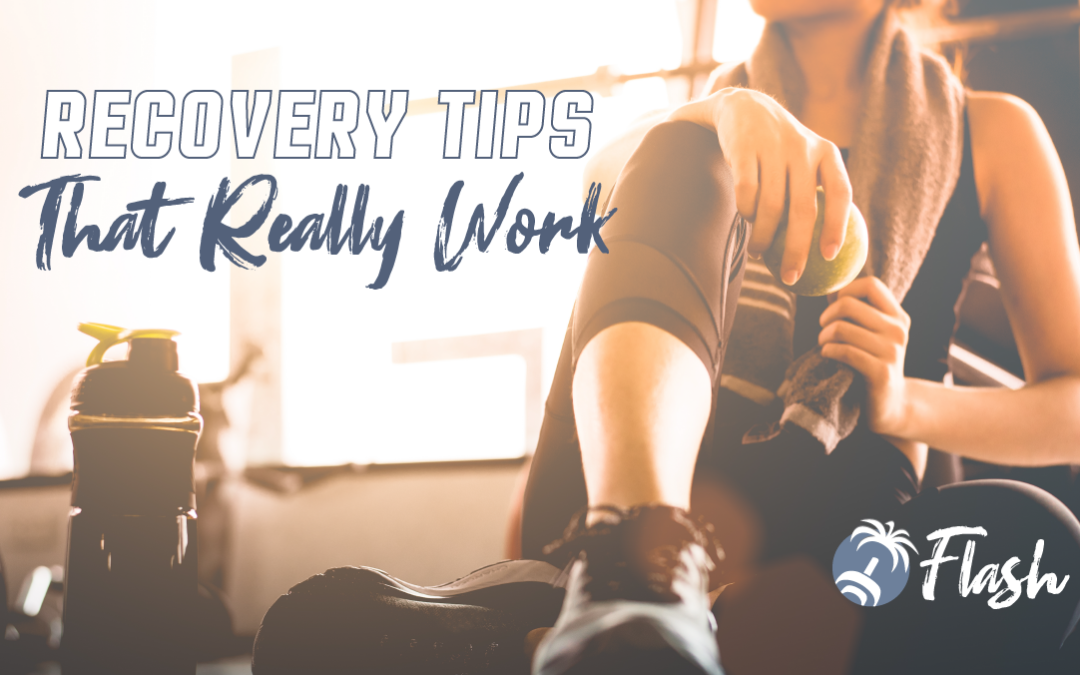Did you know that recovery is JUST AS IMPORTANT as your workout?
For those seeking to make muscle gains, lose weight, and get stronger, starving yourself or going on an unrealistic fitness plan just won’t give you the results you want.
We sat down with Beth Scanlan, co-owner of Bayshore Fit and fitness expert, to get the skinny on recovery tips that actually work.
“What do you mean, take a day off?”
You heard correctly – in order to get real, lasting results, you’ll need to take regular rest days off – days where you don’t train.
“When you work out, you’re breaking down the actual muscle tissues,” says Beth. “When you rest, your muscles enter the recovery phase where it starts to rebuild the muscle. After doing this consistently, the body will adapt over time and become stronger,” she explains.
Fluid replenishment
Staying hydrated is more than just drinking when you’re thirsty. Part of proper recovery is ensuring that your body has fluids before, during, and after a workout.
According to the experts, you should start drinking water at least 15 minutes before your intended workout. For every 20 minutes spent working out, replenish with eight ounces of fluids.
If you engage in high-intensity workouts, especially outdoors – opt for even more fluid replenishment.
Getting your zzz’s
“Getting the recommended amount of sleep is crucial for your recovery,” says Beth.
Not only will a poor night’s rest leave you less motivated to work out and exert yourself, sleep deprivation also influences hormones like cortisol, leptin, and ghrelin. Hormones directly linked to stress, fullness, and hunger, respectively.
When you don’t get enough sleep, cortisol, the stress hormone, rises in the body. Combine that with depleted ghrelin, you’ll be left feeling hungry all of the time – even right after eating a big meal.
In other words, not getting enough sleep can wreak havoc on your workout efforts. Aim for 8 hours a day and set a bedtime schedule to make sure you stay on track to give your body the sleep recovery it needs to support a healthy metabolism.
Glycogen replenishment
“The process of building muscle actually involves breaking it down, and rebuilding it,” says Beth. “When you work out, you deplete your muscles of glycogen – a carbohydrate that we use as the main storage form of glucose.”
Luckily, there is a window of opportunity at the end of each workout, where your body will benefit more from high-quality proteins and carbohydrates to recover faster.
“As a rule of thumb, you should eat something within the first 60 minutes following a workout,” Beth explains.
Even if you’re rushed and don’t have time for a proper meal, grab a protein shake, Greek yogurt cup, or even a handful of almonds. Many people overlook this, thinking the benefit will be better if they skip a meal.
At Bayshore Fit, we know what it takes to maximize performance, lose weight, and develop the strength you’ve always wanted! Contact us today to become a member, see our list of classes, or schedule a one-on-one session with our trainers.
